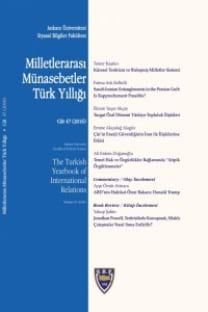Political Islam: In Whose Service?
Political Islam: In Whose Service?
The discussions and the events of the Middle East and North Africa have been intensifying around “political Islam” especially since 9/11. That concept evolved into a global issue as well, principally in terms of its relation to great power interests. While some groups, mostly unofficial but influential, regard the Mohammedan creed as the singular solution to virtually all pressing problems, some others suppose that the same concept poses a conflict with the Judeo-Christian world. Some Muslims, on the other hand, credit secularism as a source of mutual tolerance and a basic condition for progress. It was only in Republican Turkey that this Enlightenment value of the French Revolution had become a constitutional principle in the early 20th century. Both Muslim fundamentalism and the leading imperialist powers, irrespective of a degree of conflicts between them, are active actors in the upheavals in the quoted geographical area. However, the popular movements of the masses have democratic agendas for the benefit of the overwhelming majority. There is an alternative to such assaults against the rights of the downgraded poor. The initial twin cures for the ills driving from fundamentalism and militarism are secularism and democracy. But a “change” requires organized opposition and a democratic conquest of power by or on behalf of the have-nots
Keywords:
Islamists, religious reaction, fundamentalism, Muslim Brotherhood, terrorism, imperialism, Greater Middle East project, Afghanistan, Egypt, Syria, secularism democracy.,
- ISSN: 0544-1943
- Yayın Aralığı: Yıllık
- Başlangıç: 1960
- Yayıncı: Ankara Üniversitesi Siyasal Bilgiler Fakültesi Uluslararası İlişkiler Bölümü
